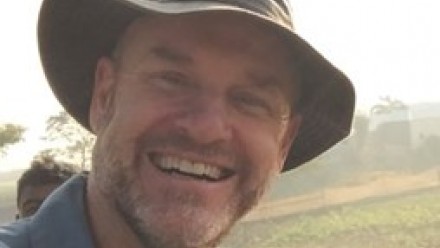RSB Director's Seminar: Learning the languages of cells across time and space
Abiotic stress such as drought cause significant crop losses by reducing photosynthetic efficiency, growth and yield. Key to limiting crop losses in harsh and variable climates is an understanding about how cells perceive and communicate environmental perturbations. Chloroplasts, the site of photosynthesis, can be viewed as an environmental sensor for the cell. How do they communicate their status to the rest of the cell via a process known as retrograde signaling. How does the plant respond and has this varied across evolutionary time scales? Our strategy has spanned from the lab to the field and from gene to signal to whole plant, alongside a consideration of evolutionary drivers and consequences. The journey has provided the foundation for industry-focused projects, such as developing higher yielding wheat lines. The seminar will reflect on parts of a 25+ year journey and what are the skills and technologies needed to enable next generation researchers to develop climate resilient crops.
Barry Pogson FAA completed his PhD at Macquarie University in 1992, followed by postdocs with CSIRO and in the USA, before taking an Assistant Professorship at Arizona State University. He began his journey at ANU in 1999. Currently, he is the Director of the Australian Research Council Centre for Future Crops, which is focused on training the next generation in the new genetic technologies for improving crop yield and resilience in response to changing climates, inclusive of societal expectations. He is also an ARC Laureate Fellow in SynBio focusing on pathways and processes that regulate growth, photosynthesis and drought tolerance.





